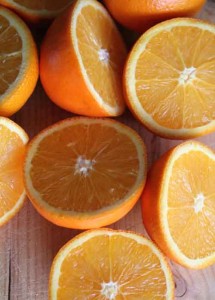
More evidence that low-calorie sweeteners are bad for your health
Studies show that artificial sweeteners can raise the risk of hypertension, metabolic syndrome, type 2 diabetes and heart disease, including stroke.

Natural Health News — Upping your daily vitamin C intake could help to reduce blood pressure, according to an analysis of years of data.
The scientists from prestigious Johns Hopkins University in Baltimore reviewed and analysed data from 29 randomised, placebo controlled clinical trials that reported the effect of vitamin C intake on systolic and/or diastolic blood pressure.
What they found is that taking an average of 500 mg of vitamin C daily – about five times the official recommended daily dose – reduced blood pressure by 3.84 mm Hg (millimetres of mercury, a standard measurement of pressure) in the short term. Among those diagnosed with hypertension, the drop was nearly 5 mm Hg. These reductions are, according to the Mayo Clinic, similar to what could be expected through regular weekly exercise.
Side effects of medication
By comparison, patients who take blood pressure medication such as ACE inhibitors or diuretics (so-called “water pills”) can expect a roughly 10 mm Hg reduction in blood pressure.
They may also, however experience a much wider range of adverse effects.
ACE inhibitors for example can cause hypotension (dangerous drop in blood pressure), hyperkalemia (too much potassium in the blood – a risk for heart arrhythmias), headache, dizziness, fatigue, nausea, consistent dry cough and kidney damage. Diuretics (depending on the type prescribed) can lead to hypotension, hyperkalemia, muscle weakness, fatigue, constipation and gout.
Whilst mega-dosing with vitamin C may also cause adverse effects, such as diarrhoea and kidney stones, the 500mg dose in this study is well within what is known as the No Observed Adverse Effect Level (NOAEL) – the known safe daily dose as determined by scientific research – of more than 1000mg daily. In fact, there is no consistent evidence of harm caused by even higher doses.
Fewer strokes with more vitamin C
“Although our review found only a moderate impact on blood pressure, if the entire US population lowered blood pressure by 3 mm Hg, there would be a lot fewer strokes,” said Edgar “Pete” R. Miller III, MD, PhD, an associate professor in the division of general internal medicine at the Johns Hopkins University School of Medicine and leader of the study in the American Journal of Clinical Nutrition..
Frustratingly, Miller and colleagues refused to recommend supplements as a way of treating high blood pressure saying “…we really need more research to understand the implications of taking them”.
Why are we hesitating?
Like most diseases of modern culture, hypertension responds best to a multifaceted approach.
According to the latest figures from the World Health Organization around 25% of people aged 25 or over now have high blood pressure worldwide.
High blood pressure, or hypertension, has no obvious symptoms but is nevertheless an important risk factor for heart disease and stroke. Usual treatment may include drugs, exercise, weight loss, and dietary changes such as reducing salt intake.
A low or no meat diet has also proved successful and some experts believe that large amounts of vitamin C found primarily in fruits and vegetables, could be one reason why.
Scientists also speculate that vitamin C may act as a diuretic, causing the kidneys to remove more sodium and water from the body, which helps to relax the blood vessel walls, thereby lowering blood pressure.
Getting more vitamin C
A diet with plenty of fruits and vegetables will help ensure you get plenty of vitamin C. The dose of vitamin C given in this study, say the researchers, is the equivalent of around 6 glasses of orange juice per day. This is a misleading example, however, since citrus fruit is not the only or even the highest concentration of vitamin C.
Rose hips, the fruit of a wild Dog Rose plant, are the cheapest and best source of vitamin C, containing 2,000 mg of vitamin C in every 100 g of fruit, which is more than 60 times the vitamin present in citrus fruits. Rose hip is available in powder form or capsules and as rose hip syrup (see our feature and recipe).
Other high vitamin C foods include papaya, sweet and chilli peppers, broccoli, kiwi fruit, dark greens like kale, mustard greens and cress and cantaloupe. Acai and acerola berries are also good, though sometimes expensive, sources.
Vitamin C is excreted quickly from the body so if you want to get the best from a supplement in addition to your healthy diet, take an esterified form which has a slow release action.

Please subscribe me to your newsletter mailing list. I have read the
privacy statement